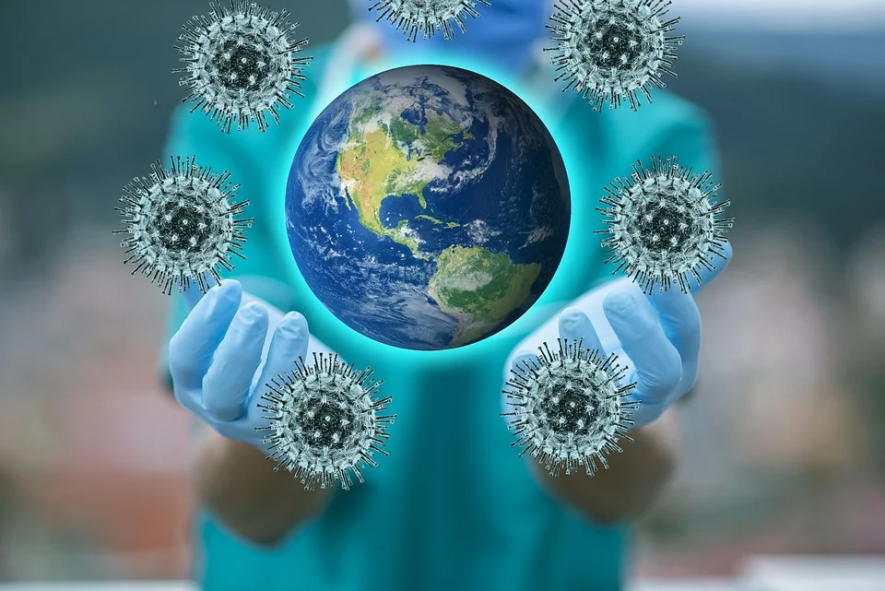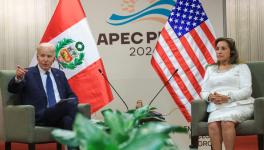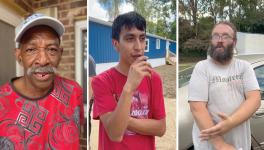World Health Assembly 2020: Are We Doing Enough to Protect the World from COVID-19?

Image Courtesy: Pixabay
The article below is part of the‘WHO-Watch’ program, which is an effort of the People’s Health Movement. The programme works towards democratising global governance for health and involves young activists in following the governing body meetings of the World Health Organisation – the Executive Board meeting in January and the World Health Assembly in May – every year.
The World Health Assembly (WHA) is set to start on May 18. The annual event of the World Health Organisation sees participation from governments (Member States), civil society organisations and other stakeholders such as vaccine alliances, pharma lobby groups and students’ organisations. In other times, the week-long saga gives an opportunity to state and non-state actors to come together and discuss health policies in the same building. It gives an opportunity to the poorer countries to push for a global governance that benefits their populations.
This year’s WHA is taking place at an unprecedented time. The world is in grip of coronavirus disease as cases and deaths increase with every passing day. The original schedule of four days has been reduced to two days and all agenda items are off the table except COVID-19. The regular speech of the Director General and some heads of states will also take place.
However, even during the time of this pandemic, countries are failing to create a robust system of governance under the leadership of the World Health Organization (WHO) to ensure equitable access to medicines and other medical products across the globe. The WHO has been weakening overtime – the assessed funds are declining compared to voluntary funds taking away independent decision-making of the agency. Increasing bilateral agreements between countries have also undermined the WHO. The recent move by the US accusing the WHO of promoting disinformation over the coronavirus outbreak in connivance with China only made the WHO more vulnerable.
The current WHA seems to continue toeing the same line, even though the need for a global leadership in health is of paramount importance today. The key discussion in the WHA will be based on a draft resolution, floated initially by the European Union, and later supported by 35 more countries. The resolution stands weak as it promotes voluntary pooling of technological know-how instead of binding commitments that uphold the principles of ‘Health for All’. Voluntary pooling is an unaccountable mechanism in which the originator company of the product is expected to pool the know-how on their own accord. Whether the companies want to put patents in the pool or not would also be their decision. In effect, the multinational corporations are being allowed to conduct business as usual. U.S. pharmaceutical company Gilead has already started the process by giving voluntary licenses of its drug Remdesivir to five generic companies. The agreements allow sale of generic versions of the medicine in 127 countries, but leave out most of the high-burden countries. They will serve as a monopoly market for Gilead giving the company free reign to charge high costs for its product. To defeat such sinister designs, we need a more robust mechanism of global governance.
Also read: Live Animal Markets Shouldn't be Closed Despite Virus, Says WHO
The resolution is also silent on the implications of lockdown which has emerged as the main strategy to contain the spread of the virus. There is widespread hunger, unemployment, increase in domestic violence and police brutalities that the poor and marginalised are facing. Economic sanctions by the US against countries such as Cuba, Iran and Venezuela continue making it difficult for them to buy medical supplies to treat their populations leading to a health crisis. The current process does not address such a high-handed attitude of the US.
The other parallel and worrisome development is the launch of Access to COVID-19 Tools (ACT) Accelerator, initiated by the Bill and Melinda Gates Foundation (BMGF), Coalition for Epidemic Preparedness Innovations (CEPI), Gavi, the vaccine alliance, Global Fund, UNITAID, Wellcome Trust and the WHO. EU and other richer nations such as Canada, Japan and the United Kingdom have pledged US$ 8 billion towards the ACT. The initial efforts have left the developing countries (LMICs) out of it. The WHO’s role in ACT, which was launched less than a month before the WHA, is limited as one of the partners in this effort.
Something to watch out for is the proposal by Costa Rica and the WHO for technology pooling initiative. The details and modalities for the same are expected to come out later in the month.
All these developments indicate collapse of a global governance system. Civil society has been completely side-lined in these initiatives tilting the balance of power towards the power-that-be. The WHO also has been relegated to a position of partner in various interest-driven initiatives rather than a player leading from front to deliver its mandate of equitable distributions of resources especially in times of crises such as this. Instead of multilateral agreements, we are witnessing multi-stakeholder agreements in which the poor and the marginalised do not find a voice.
The WHO has many existing documents, agreed upon by Member States after thorough deliberations. Some of them are the Transparency Resolution and the Global Strategy and Plan of Action on Public Health, Innovation, and Intellectual Property (GSPoA). United Nations Secretary General’s High-level Panel on Access to Medicines also looked into similar issues in great depths. The principles set-out in these documents should become the guiding light in any discussion around access to prevention, treatment and management of COVID-19. The WHO should be given the driving seat to act through binding agreements.
The above article is compiled with contributions from Ben Eder (UK), Gargeya Telakapalli(India), Michael Ssemakula (Uganda) Osama Ummer (India), Kriti Shukla (India), Matheus Z Falcao (Brazil), Sophie Gepp (Germany) and Natalie Rhodes (UK).
Also read: A Universal Appeal for Humanity to End Militarism and Stop War
Get the latest reports & analysis with people's perspective on Protests, movements & deep analytical videos, discussions of the current affairs in your Telegram app. Subscribe to NewsClick's Telegram channel & get Real-Time updates on stories, as they get published on our website.
























